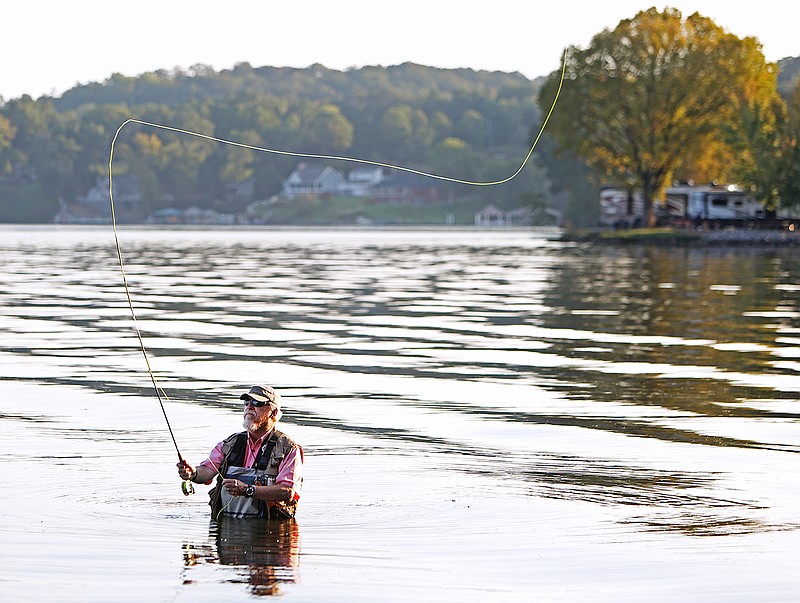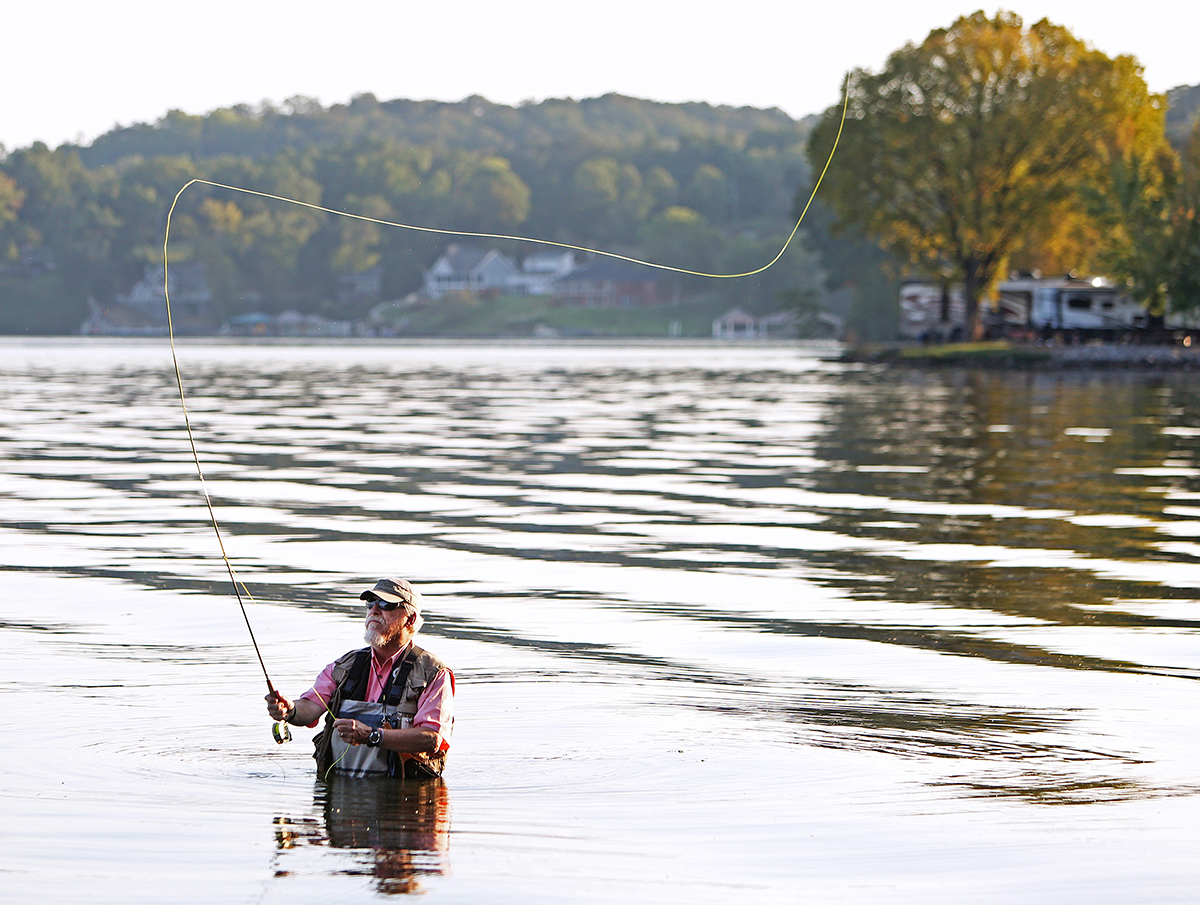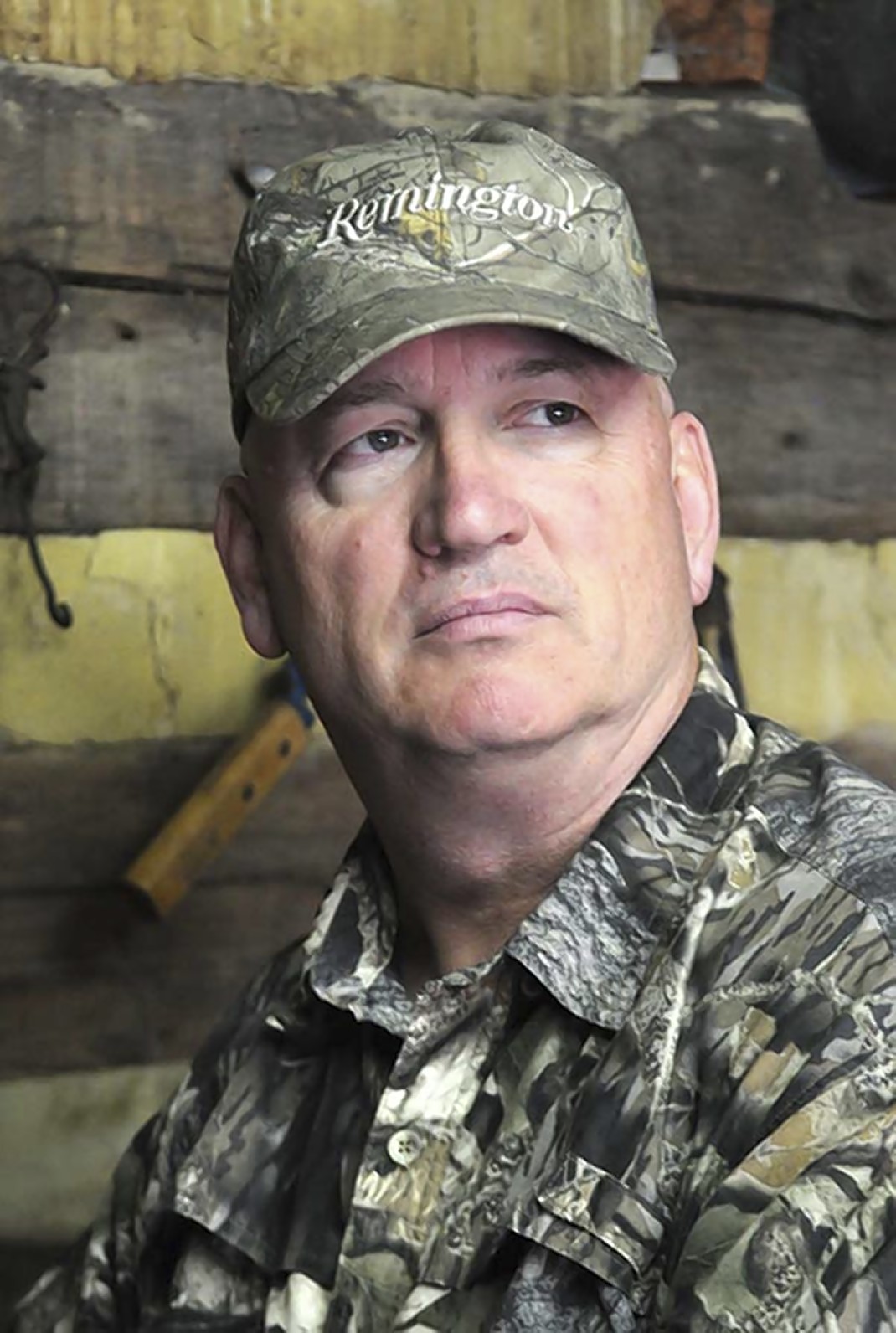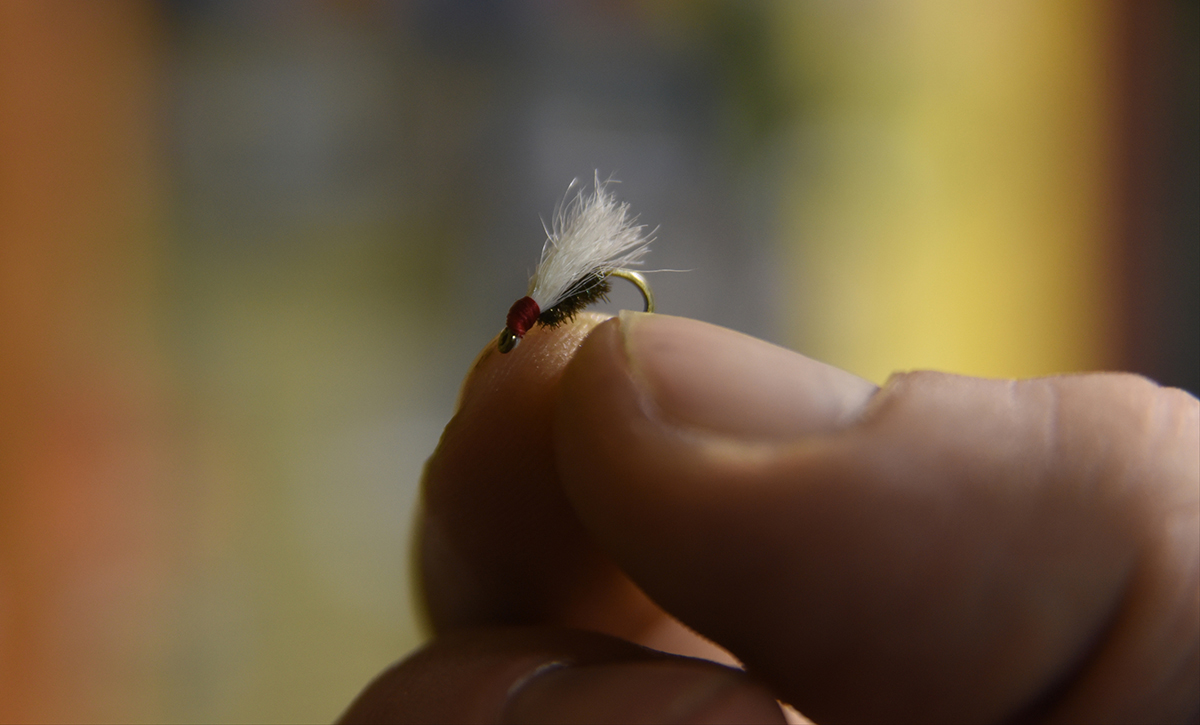Izaak Walton had it going on. Most of us probably think of an English guy who lived in the 1600s as pretty boring. Quite the contrary - old Izaak may have been the first outdoors writer in history. He published the first version of his classic "The Compleat Angler" in 1653, and he continued to revise and publish later editions for 25 years.
I wonder if he had as many problems with editors as I do.
Walton was a big advocate of fly fishing, and fly fishing, you see, is as different from other forms of fishing - such as spin casting - as beans from cornbread. They go together, but they are very different.
The main and obvious mechanical difference in fly fishing is the manner in which the lure or the fly is casted and presented to the fish. Well, shoot, I guess I need to explain about the flies first.
In fly fishing, the lure you cast to catch a fish on is called a fly. These lures are usually quite small and made of any combination of different feathers, sometimes animal hair or fur and sometimes synthetic material. All of this is held on the hook by strands of thread wrapped by the angler in a process known as "tying flies." This process is not to be confused with capturing small household pests and binding them in thread, prompting those who know nothing about fly tying to ask, "Tying flies? How do you get them to hold still?"
The completed lure, the fly, has almost no weight and cannot be casted any distance with conventional fishing tackle such as spin- or bait-casting equipment. This is where the fly-fishing gear comes in. The fly rod is long and flexible, and the fishing line on the reel of a fly-fishing rig may be slightly weighted.
The fly fisherman is actually casting the line for distance, not the lure, and this is much easier said than done. Good fly casting is an art, it is difficult at times but can be learned, and once learned it is very satisfying to the angler. (Did you see the movie "A River Runs Through It?")
The variety of the types of flies an angler may choose from is almost endless. There are hundreds, if not thousands of different flies made to fool a trout. Fly fishermen delight in all of this as well as in the names given to the different flies.
If you delve into the world of fly fishing, you will soon hear about flies such as a Royal Coachman, a Parachute Adams, a Muddler Minnow or a Wooly Booger - it just goes on forever. True followers of the Church of Fly Fishing spend half of their time standing in a cold trout stream trying to get a fish to inhale a tiny bit of fur and feathers; the other half is spent at home squinting over a desk while tying flies as they conjure up an offering for the next assault on the stream.
While trout are the main target for most fly fishermen, in these modern times all types of fish can be pursued with a fly rod. Smallmouth bass are very popular with fly fishermen these days, and you can have a lot of fun with some small flies or poppers on a bluegill pond. Fly fishing in salt water has been popular for many years, and now you will see anglers pursuing the toothy muskie with a fly rod. (Take a look at the size of some of the flies they tie for muskies.)
With a fly rod, you can angle for most any fish that swims. It may be more difficult for some applications, but this is what many people who fly fish seem to enjoy. They don't want to simply catch fish; they want to catch them their way, on their terms, with their gear, and that is a fly rod.
Izaak Walton spoke of fly fishing in terms some may not understand.
It wasn't just about going to the creek and trying to snag a fish. Walton portrayed fly fishing as an almost spiritual activity in which the angler connects with the environment, the waters, the woods and all things therein.
Walton lived in an England that was basically in ruins in 1653. His king had been executed, the Anglican Church was abolished and the country suffered a devastating civil war. Walton and his followers dealt with all of this by forming the "Brotherhood of the Angle," with all of its roots and activities being the shared appreciation of the natural world, and a big part of that was fly fishing.
If you have not picked up a fly rod yet, maybe you want to give it a try and become a more "compleat" angler.
"The Trail Less Traveled" is written by Larry Case, who lives in Fayette County, W.Va. You can write to him at larryo case3@gmail.com.



